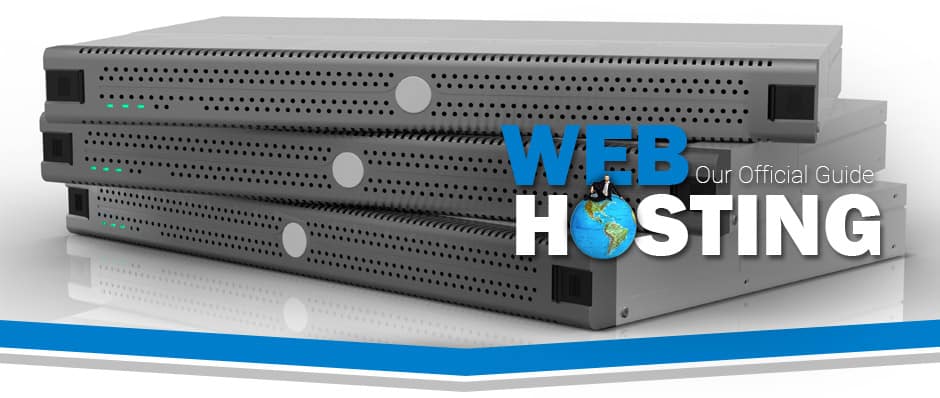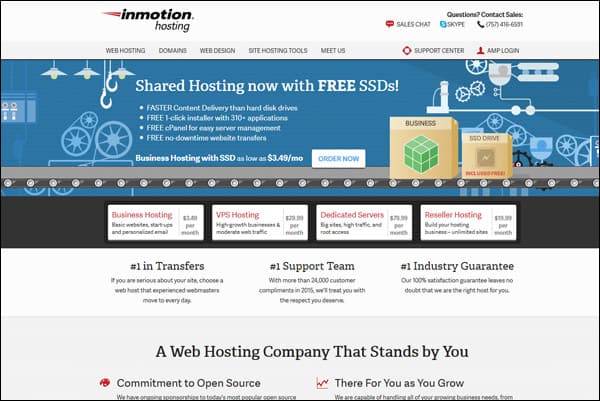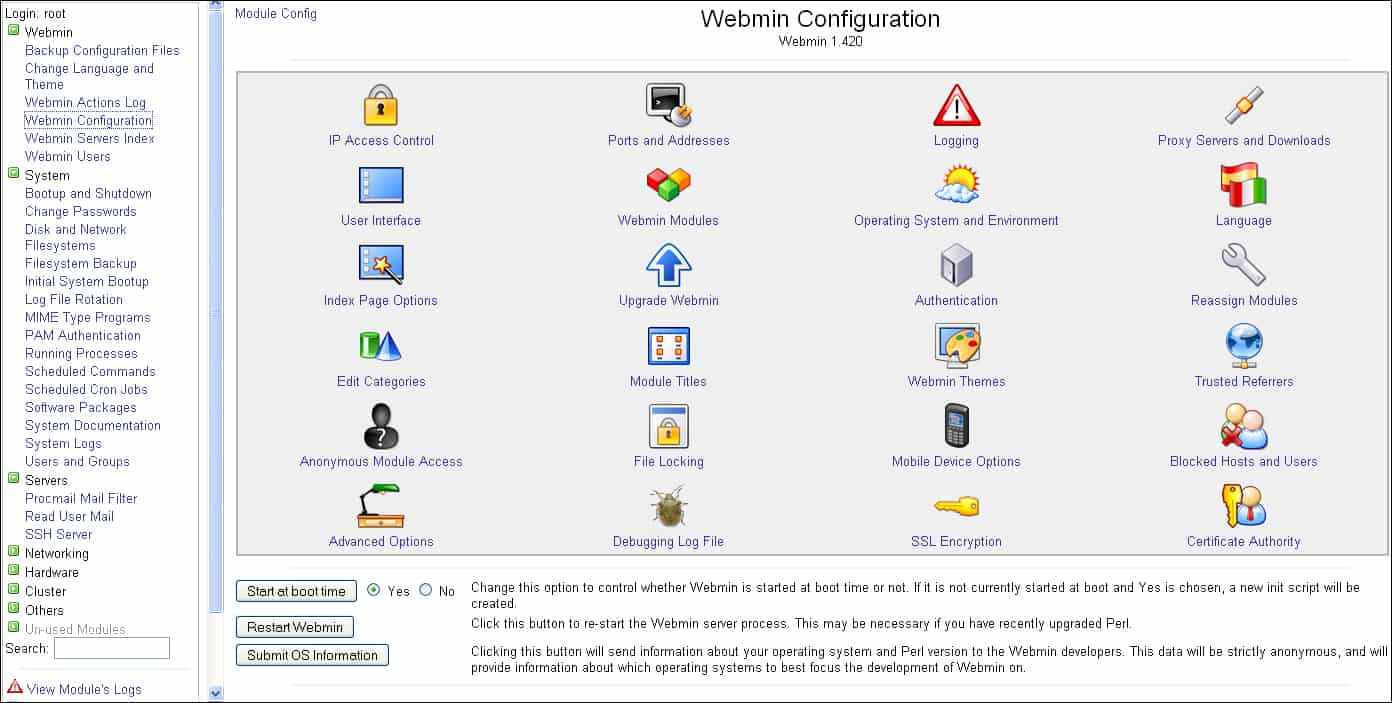Tooltester is supported by readers like yourself. We may earn an affiliate commission when you purchase through our links, which enables us to offer our research for free.
Are you curious about purchasing a VPS web hosting plan for your business?
In this article, we’ll cover the top VPS hosting companies we’d recommend signing up with, the benefits of upgrading to a VPS, and what features you should look for in a VPS hosting account.
The Best VPS Web Hosts at a Glance
A quick overview of the top choices for best VPS hosting listing the different purposes we would recommend each one for:
| Web Host | Price: | Recommended for: | Learn more |
|---|---|---|---|
| InMotion Hosting | $24.99/mo | High-performance cloud VPS hosting for businesses | View Plans |
| Liquid Web | $19.99/mo | Fully managed VPS hosting w/ premium support & reliability | View Plans |
| A2 Hosting | $5.00/mo | Customizable unmanaged & managed VPS hosting for developers | View Plans |
| HostGator | $19.95/mo | Great hardware, performance, & well-known brand | View Plans |
| Bluehost | $18.99/mo | Affordable, all-purpose VPS hosting suitable for various needs | View Plans |
Inmotion Hosting
Best value for businesses that need high performance & reliability
Starts at: $24.99/mo
InMotion Hosting is one of the best VPS web hosts on the market and is trusted by thousands of businesses world-wide.
Their VPS servers are clustered using a cloud hybrid technology to enhance redundancy and reliability for customers.
In all, they offer 3 different VPS plans with solid hardware specs and is a great choice for online businesses with resource intensive websites.
All VPS plans are fully managed, come with a free cPanel license, and include free SSDs for blazing fast performance.
InMotion Hosting have consistently proven to be one of the most reliable and highest performing web hosts in the industry with a high level of customer satisfactions among both business owners & web developers.
Read our full InMotion review.
Key Features:
- Fully managed Linux VPS
- Exceptional value
- High performance
- A+ Customer Support
- cPanel & WHM
- Softaculous ($5/mo extra)
- Optional Root Access
- Free SSD & SSL
- 4 to 8GB of RAM
- Cloud hybrid technology
Get started with InMotion today
Liquid Web
Fully managed, quality VPS hosting with exceptional support
Starts at: $19.99/mo
Liquid Web is another excellent choice for VPS web hosting and one of our newer favorites.
Their VPS plans are fully managed and come with exceptional customer support (which they call “heroic” and promise a wait time of less than 1 minute).
Each VPS hosting plan comes standard with SSD storage, built-in backups, root access, cPanel/Plesk, strong security features, and a dedicated IP address. Excluding the entry plan, all others include the choice of Linux or Windows O/S and are a favorable choice among many developers.
Their hosting is one of the fastest in the industries and comes with a 100% uptime SLA backed with a 1000% compensation for downtime.
All in all, LiquidWeb is an excellent choice for high-end VPS web hosting.
Key Features:
- Fully managed VPS
- Both Linux or Windows
- Includes cPanel/Plesk
- Exceptional tech support
- Excellent performance
- 100% uptime SLA
- Root access
- 2 to 8GB RAM
- 1 to 4 core CPUs
Get started with Liquid Web today
A2 Hosting
Great for both managed and unmanaged VPS hosting
Starts at: $5.00/mo
A2 Hosting is another great choice for VPS hosting and is also one of our favorite web hosts in general.
They offer a wide variety of customizable plans that are both managed and unmanaged (you can learn more about managed vs unmanaged below).
The unmanaged plans start at a low cost of $5 per month where the managed ones start at $32.99 per month.
All plans include free SSDs for enhanced performance and can be upgraded with plenty of RAM. They also offer Windows with Plesk as well.
Their plans are feature rich and a great choice for developers who want full control and advanced capabilities over their account.
Read our full A2 Hosting review.
Key Features:
- Managed & unmanaged VPS
- Linux or Windows
- A+ customer support
- Highly customizable
- Fast & reliable
- Starts $5.00/mo unmanaged
- Starts $32.99/mo managed
- Free SSDs
- Root access available
- 512MB to 8GB RAM
- 1 to 8 core CPUs
Get started with A2 Hosting today
HostGator
Solid VPS Hosting for Uptime & Reliability
Starts at: $19.95/mo
HostGator also offers good VPS hosting services with great uptime and reliability.
A well-known brand, HostGator offers 3 separate VPS plans (named Snappy 2000, 4000, and 8000) to choose from.
Each plan comes with flexible software options, decent hardware specs, and award winning support.
Their introductory pricing is fairly low, yet their renewals are very high. It’s highly recommended to choose a longer term to avoid a sooner renewal fee. Also, if you want cPanel, you’ll need to add this option at checkout, which roughly adds another $10/mo more to the overall cost.
Despite the cost, HostGator is a brand name in the industry and is widely recommended, providing premium hosting services. Read our full HostGator review.
Key Features:
- Fully managed Linux VPS
- Established, well-known brand
- Good performance/uptime
- Award winning support
- Full root access
- Great uptime/reliability
- AMD Opteron CPUs
- 2 to 8GB RAM
- Optional cPanel @ $10/mo
- Very high renewals
Get started with HostGator today
Bluehost
All-Purpose VPS Hosting Suitable for Various Need
Starts at: $18.99/mo
Bluehost is another well-known web hosting provider and a popular choice for VPS web hosting.
A sister company to HostGator (both EIG owned), Bluehost offers a variety of VPS plans suitable for virtually any website.
They also offer WordPress specific VPS plans that are better optimized for WordPress.
All their plans offer solid performance that comes packed with numerous features & add-ons.
Their standard VPS plans are very affordably priced (currently starting at $18.99/mo) with their WordPress specific VPS plans starting at $1 more.
Furthermore, a revamped user interface and great customer support make Bluehost a safe choice for a wide target audience.
Read our full Bluehost review.
Key Features:
- Well-known brand
- Includes cPanel
- Root access
- Fully managed VPS
- Great for WordPress
- 2 to 8GB RAM
- 2 to 4 core CPUs
- Low introductory price

What to Look for in Purchasing a VPS Hosting Plan
Virtual Private Server (VPS) web hosting plans are designed to give more power and flexibility for custom developed software requirements and high traffic domains.
VPS plans are ideal to support complex web and mobile applications that require a custom web server software stack build due to programming language requirements.
VPS hosting is considered an upgrade path from shared hosting when a website becomes too popular or resource intensive to be hosted under the limitations of an entry level account.
When searching for the best VPS web hosting solution, the most important options to consider are:
Factors to Consider:
- VPS Platform Type (Managed, Unmanaged, or Cloud)
- The Choice of Operating System for the Web Server
- Hardware Performance (CPU, RAM, & SSD Storage)
- The Virtualization Software Used on the Platform
- Available Options for Systems Administration
- Cloud Optimization Tools for Website Performance
- Web Security Measures & Back-Up Utilities
- Technical Support & Customer Service
The main reason to host on a VPS plan is either that a website requires more system resources to support user traffic than a shared hosting plan will provide or that the development requirements of a web/mobile application necessitate the custom build of a web server with extensions that cannot be found on a managed stack.
FUN FACT
Technically, a VPS will function in the same manner as a dedicated server while operating on a partitioned hardware allocation that allows for the use of only a fraction of the resources of the host machine.
Determining the VPS Platform Type
You’ll first need to determine what platform type of VPS you’ll need. There’s managed, unmanaged, and Cloud. We’ll describe each of these in more in detail below…
Managed vs. Unmanaged VPS Platforms
VPS hosting plans are available in both managed and unmanaged options depending on whether the data center company offers pre-installed software on the partition or the user is free to install and configure the OS plus server extensions independently.
Most managed VPS plans include a pre-configured version of the Linux operating system with Apache, MySQL, PHP, Python, Perl, and other extensions for web development loaded with optimized settings.
Some managed VPS hosts offer different OS “snapshots” (Ubuntu, RHEL, Debian, CentOS, OpenSUSE, Slackware, etc.) that can be chosen which include professional utility frameworks for programmers to speed up deployment.
Windows VPS accounts are provisioned with a default ASP.net configuration, MSSQL database support, Visual Studio, & Hyper-V virtualization options under standard IIS settings.
With unmanaged VPS plans, only the physical server hardware is maintained by the data center, leaving the user free to install the OS of choice as well as any additionally required programming languages, database protocols, or software extensions.
It is the customer’s responsibility to install and maintain their own web security policies on unmanaged VPS plans. Managed VPS platforms often include a cPanel license with a CentOS Enterprise Linux installation.
Unmanaged VPS plans offer a greater ability to build out a completely customized web server environment, i.e. for Nginx, Java, Node.js, Litepeed, etc. and are frequently used by programmers of web and mobile applications for their project requirements.
Managed and unmanaged VPS plans are normally priced similarly and can be configured with the exact amounts of RAM, CPU cores, SSD/HDD storage, etc. that is required to support complex websites and mobile applications in production.
Cloud VPS Platforms
Many web hosting companies now offer Cloud VPS plans with more advanced load balancing for user traffic, premium hardware configurations, pre-installed platform optimization for CMS websites, improved web page caching options, and options for “burstable” RAM that scales to support more simultaneous users.
Some Cloud VPS plans may also support cluster orchestration through on-demand cloning of website files and database synchronization to scale to meet the demands of higher web traffic conditions.
These servers can be scheduled to provide additional resources to websites and mobile applications for peak times like holidays, weekends, special ecommerce promotions, and online sales.
Cloud VPS plans are built using OpenStack, CloudStack, OpenVZ, Virtuozzo, VMware, Microsoft, or Parallels software primarily, usually with KVM as the hypervisor.
The most advanced Cloud VPS plans include full cluster orchestration that can be used to support websites and mobile applications with thousands or even millions of simultaneous users at a time.
Cloud VPS plans are often constructed with premium hardware, solid state drives (SSDs), and low-density account allocation to distinguish them from other managed VPS platforms.
The use of SSDs with the latest multi-core servers and large amounts of installed DDR4 RAM on optimized Cloud VPS platforms has shown performance gains of over 20x in page load speeds under benchmark testing primarily from better I/O transfer times.
Many popular web hosting companies have launched Cloud VPS solutions as Platform as a Service (PaaS) products designed specifically for the web hosting needs of custom LAMP, WAMP, or Java server development.
A server stack snapshot service like Bitnami can be integrated on Cloud VPS platforms to allow for the near instant provisioning of complex web development environments, including the choice of thousands of different CMS, CRM, ecommerce, & blog scripts together with a variety of operating system options, programming language extensions, and database frameworks.
Cloud VPS plans often include a “pay-as-you-go” approach to resource usage, where the account owner has scalable access to system RAM, CPU cores, processing hours, storage, and bandwidth according to real-time web traffic requirements.
Choice of Operating System
The choice of operating system is not usually available with managed VPS hosts which offer a default Linux distribution and software stack that is deployed across all installations of a virtualization platform.
Some web hosting companies offer a free license for cPanel on CentOS with WHM which can be a good value as these can cost over $20 monthly if purchased independently.
Windows VPS servers are normally priced without additional OS licensing costs due to vendor agreements with Microsoft, but it is important to confirm this in advance to avoid hidden fees.
Unmanaged VPS plans provide the greatest amount of flexibility on the choice of the operating system but require more time in custom configuration and systems administration.
Cloud VPS plans that permit the full installation of a web server OS, software stack configuration, and CMS script together in seconds from snapshots are considered the wave of the future.
These platforms draw heavily on new developments from the use of containers, where virtual servers can also be provisioned from full stack snapshots stored on GitHub or other websites in the cloud.
Considering the amount of time required to install a full operating system with all of the programming language extensions using unmanaged VPS plans traditionally, snapshot-based cloud VPS systems can save many hours overall in systems administration.
Hardware Performance
CPU speed benchmarks are recommended to evaluate between VPS web hosting costs, as they can help determine the performance difference between the various Intel Xeon processors and AMD Opteron chips.
Look for VPS accounts which offer a free upgrade to Solid State Drives (SSDs) for best performance and value. Bandwidth speeds may vary between web hosting companies, so it is necessary to establish what the data transfer rates are on each account, as well as if there is the ability to provision different uplink providers.
Instant upgrades provide the ability to add more RAM, CPU cores, and disk space to a VPS account without the need to re-install the operating system and website files.
Published research states that there is overall only a 1-3% difference in VPS performance vs. “bare-metal” hardware instances, primarily due to the low overhead of virtualization software, but this can actually vary depending on the platform software in use.
Due to the massive system resources available on contemporary web server hardware, VPS performance in real-time may be determined more by the density of user accounts on each machine and the actual amount of network traffic routed to each web server moment to moment.
Advanced load balancing software and data mirroring by webhosts can be used in a data center to improve processing speeds. Even the DNS response time, measured in milliseconds, can affect VPS performance and hosted website page load speeds.
Overall, the fastest website performance on VPS is garnered by configuring multiple layers of page caching, including CDN support in production, although many users also use VPS to run Nginx over Apache for similar reasons.
Keep in mind that the physical location of your server matters too. If the majority of your audience comes from, say Europe, it would be highly recommendable to have it in Amsterdam, Frankfurt, or London rather than in California or Texas.
Virtualization Software
Identification of the virtualization platform each VPS hosting company uses (OpenStack, Xen, VMware, OpenVZ, Virtuozzo, KVM, CloudStack, Microsoft, Parallels, SolusVM, etc.) is another way to evaluate performance.
The type of hypervisor implemented by the virtualization system will also determine various aspects of VPS functionality, such as the operating system configuration options, monitoring software, account isolation, and cloud storage integration.
Knowledge of the fundamental features of each virtualization platform will also help admins determine what to look for when evaluating between managed, unmanaged, and cloud VPS hosts.
The latest developments in virtualization revolve around the use of containers like Docker, which are much lighter and faster than VPS partitions in terms of the system resources required to run on a web server.
VPS partitions can also run in containers and vice versa, increasing the complexity of data center operations as well as the number of options available to programmers in DevOps deployments.
OpenStack and OpenVZ are two of the most popular VPS platforms in cloud web hosting currently, primarily because they are free and easily extensible through third-party modules available from development teams as plugins for user management, billing, monitoring, network security, etc.
CloudStack and Apache Mesosphere are also widely used for complete data center management at enterprise scale. Virtuozzo is a more feature-rich version of OpenVZ favored by larger webhosts as a VPS platform management system, but with more expensive licensing fees.
Parallels is a well-recognized company which also produces desktop virtualization software, while Xen and VMware solutions are common solutions in corporate data centers along with Microsoft tools based on Hyper-V.
SolusVM is a complete VPS management package recommended for independent web hosting companies that works with multiple virtualization platforms and includes extensive tools for user account management.
Almost all of the virtualization software used on VPS plans rely on KVM as the hypervisor, which enables the OS kernel to be shared between both Linux and Windows partitions.
Systems Administration
Developers should determine whether the command line or a control panel will be used to manage web server settings in advance of signing up for a new VPS account plan.
Instant provisioning in managed VPS hosting can speed up development times considerably over self-installed plans when configuring the operating system.
The most popular choices for server administration on VPS accounts are cPanel, Plesk, Webmin, and Virtualmin. All of these tools for Linux provide a GUI navigation interface to simplify domain management and the configuration of server extensions.
Many VPS users are already familiar with the use of command line tools for remote systems administration.
Cloud VPS plans use web server snapshots to deploy a full stack consisting of an operating system, web server platform, programming languages, databases, & CMS scripts in seconds, saving countless hours in systems administration over other methods.
For example, users can install a full web server stack including Red Hat Enterprise Linux, Apache, PHP 7.x, MySQL 5.x, and Drupal along with the Zend Framework for development and a suite of programming tools just by selecting a particular snapshot package.
All of the code is downloaded from GitHub or another repository, making it easier to provision web servers on the fly. Using this method, as well as the “pay-as-you-go” approach favored on Cloud VPS plans, it is more efficient for developers to test production code on a variety of different web server stack combinations.
These processes can also be automated by scripts to operate on demand with container orchestration systems.
Cloud Optimization
Cloud optimization often includes reverse proxy load balancing and advanced website page caching software that is pre-installed on a managed VPS platform with premium hardware and low account density. On an unmanaged VPS platform, proprietary software solutions that require an extra license or paid fee to use can be installed to create a custom development environment.
Cloud VPS plans will normally include all of the server extensions required to run popular web scripts like WordPress, Drupal, Joomla, Magento, Moodle, etc. with optimized settings for increased high-traffic scalability.
Most Cloud VPS frameworks can also be further configured through the command line to support Nginx servers, Varnish Cache, new third-party database formats, or other custom development frameworks that extend the LAMP stack. Look for Cloud VPS accounts with “burstable” RAM and solid state drives for the best performance when hosting CMS websites.
Some of the most advanced and more expensive Cloud VPS plans will also offer cluster orchestration for websites and mobile apps that need to support a high amount of web traffic and simultaneous users.
These plans also permit administrators to schedule resources so that a certain number of VPS instances will be online at any given time in expectation of user need.
This allows popular businesses and mobile apps to schedule more web server resources for holidays, weekends, & special promotions, although in practice, there are many more ways that the software can be used in advanced web/mobile application deployments.
Cloud optimization may also entail separating the storage and database of a web/mobile app onto different VPS partitions for better performance or OS support, such as building complex systems for enterprise support of legacy applications.
Web Security & Back-Up Utilities
Web security is a highly complex field in computer science that is responsible for guaranteeing the integrity of user data in transit through encryption, protecting sensitive information in storage, guarding the database from theft or intrusion, as well as monitoring packet transmissions for malware or known exploits from hackers.
While the cloud hosting provider will always guarantee a certain quality of network and hardware security on VPS plans, there is a wide range of difference between web security standards according to project requirements that need to be managed individually by the systems administrator.
Before signing up for a VPS hosting account, website owners should determine whether the plan includes provisions for integrated database and site file backups or if these will be scheduled through a third-party service.
It is also important to confirm the type of firewall, network security, DDoS protection, and anti-spam services offered by different web hosts on VPS plans particularly.
Systems administrators on unmanaged VPS hosting plans are usually responsible for maintaining the web server security settings for the OS, programming language extensions, database, and installed web software independently.
Managed and Cloud VPS hosts include experienced remote technicians who specialize in keeping web server software patched with the latest security upgrades on a daily basis.
The importance of backup services cannot be underestimated, as these allow administrators to easily restore a website in minutes if there is a system crash, hack, hardware failure, etc. that takes a website offline. The same backup files can also be used to easily port sites from server to server in web development.
Technical Support & Customer Service
Uptime guarantees and the data center rating of the web hosting company are additional determinants that can be used to evaluate between the various VPS account plans offered by competitors.
Look for companies with a strong commitment to customer service and who offer direct contact with experienced systems administrators for technical support in the data center.
Companies that provide 24/7 support services through toll-free phone lines and quick turn-around on email requests are recommended for the most efficient management of common website hosting problems.
Most web hosting companies will not offer too much assistance with configuring a VPS plan for web development under unmanaged frameworks. However, with the managed VPS plans, the software stack used in the VPS installs is generally the same as on the company’s shared hosting accounts.
Many webhosts will actually transfer all of the website files and databases for any installed domains for free when upgrading from shared to VPS plans with the company.
Similarly, many companies will also transfer a website from a remote host to their own data center in order to secure new business on a long term plan.
VPS accounts often include real-time monitoring software that allows site owners to view the details of online traffic and dial-up more CPU cores, RAM allocation, or storage space without restarting the server or going offline.
Many power users require a guaranteed 24/7 phone connection to technical staff at a webhost and companies have begun charging extra for this service. Generally, however, most companies provide the same customer service on VPS plans as they do for shared hosting or dedicated web servers.
Conclusion – Final Thoughts on Choosing a VPS Suitable for You
When looking to purchase the best VPS hosting plan, the method of system administration is usually the most important factor in determining the choice between different plans, i.e. between a managed or unmanaged platform.
Cloud VPS web hosting plans are normally based on premium hardware with DDR-4 or ECC RAM, powerful Intel/AMD multi-core processing, and solid state drives (SSDs) that promise performance much faster than shared hosting plans.
This is basically because of the dedicated system resources, i.e. more RAM, CPU cores, & I/O processes are made available to scripts on the hardware than permitted under the shared plan limitations.
VPS performance, whether it is a cloud, managed, or unmanaged account, will actually be determined by the amount of system resources contracted for through the company.
Just like dedicated server hardware, the cost will be higher the more RAM, CPU cores, and storage space that is required. On a functional level, VPS plans are almost equivalent to dedicated servers with the exception of account isolation.
Because many VPS plans may run on the same web server hardware together with a shared OS kernel, there are a number of security exploits designed to take advantage of the different platform virtualization software.
In practice, however, there is little that businesses can do about this except to trust the cloud hosting company & software programmers for security or lease dedicated hardware if complete account isolation is required.
In making the final decision between VPS web hosting plans, remember to compare:
- The number of dedicated CPU cores allocated to the virtual machine
- The amount of guaranteed system RAM memory provided to the account
- The cost of the HDD/SSD storage space included with the plan
- The bandwidth limits for monthly data transfer & price for additional usage
Website owners and developers considering leasing a virtual private server will need to closely scrutinize the difference between managed, unmanaged, and cloud VPS plans with regard to these features in order to make an informed decision between the variety of platforms available in the marketplace.
Overall, which VPS plan is the right choice will depend primarily on what the programming language support requirements of a project are, including the training and personal preferences of the development team.
Other important elements to consider are the price for hardware resources, the operating system to be installed, use of a control panel or the command line in systems administration, and the need for managed platform security for websites in production.
Web developers and programmers have much more freedom working with VPS plans at a price range that is considered mid-range between shared hosting and dedicated hardware.
THE BEHIND THE SCENES OF THIS BLOG
This article has been written and researched following a precise methodology.
Our methodology







